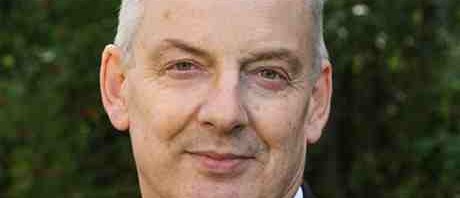![]()

Jim Mansell CBE
In 1970, there were 60,000 adults and children with learning disabilities living confined, institutional lives in long-stay hospitals. That autumn, a young student newly arrived at Cardiff University agreed to help take a group of children from the city’s Ely hospital to the cinema on a Saturday morning. From that point on, the hospitals stood no chance.
The student was Jim Mansell (pictured). His experience that October day was to change him, his direction in life and, arguably, the very basis of how we support people with the most profound intellectual disabilities. Today, at least in England, the long-stay hospitals have all gone.
Mansell, who went on to become the country’s leading authority on working with people with what is now called “challenging behaviour”, is due on Thursday to receive the CBE, announced in the new year’s honours list. Despite very poor health, he is said by friends to be determined to keep his appointment at Buckingham Palace.
It’s a long way from Ruthin Gardens, Cardiff, where, remarkably, Mansell and three fellow students decided to share a house with five people from Ely – an arrangement that set the pattern for the supported living model that was to enable almost all those in long-stay hospitals to move into the community. Revisiting the house for a BBC radio programme in 2005, Mansell recalled that fateful cinema outing. Ely in 1970 had only recently been the subject of one of the first inquiries into ill-treatment of people then termed “mentally handicapped”, yet conditions remained shocking by present-day standards. The children had shaven heads because lice were endemic, Mansell said, and “I remember not enough underwear, so people [were] wearing pillowcases pinned around them, trousers held up with pins”.
He continued: “We took a crocodile of these children across the road, out of the hospital, and through a council estate to a cinema, and the people on the estate came out … to press money into our hands to buy things for these children because they were in such obvious need. We were so angry about what was going on, we formulated the idea that really these kinds of places shouldn’t exist and people should be able to live in houses with whatever support they needed in the community.”
Within a fortnight, Mansell had called a meeting to discuss Ely’s closure – the idea that he might lack credentials for what he was doing “was actually a question that never occurred to me”.
Ely was not finally to shut until 1996. By then, Mansell had played a pioneering role in the long-stay hospital closure programme in England and was founding director of the Tizard Centre, one of the world’s leading centres of study of learning disability and community care. He had also led work on the definitive official guidance for councils and the NHS, published three years previously, on Services for People with Learning Disabilities and Challenging Behaviour or Mental Health Needs.
He revised and updated the guidance, which became known as “the Mansell report“, in 2007, and in 2010 published a second report for government, Raising Our Sights, which focused on support for people with the most complex needs. There was an underlying and wholly false prejudice, he concluded, that people with profound impairments were “not fully human”.
Speaking truth to power, often bluntly, has been a constant throughout Mansell’s career. Last year, he had no compunction about speaking out over revelations of abuse of people with learning disabilities at Winterbourne View, near Bristol, one of the private hospitals that critics see as recreating long-stay institutions. Writing in the Guardian, Mansell said: “The real solution … is to stop using these kinds of places altogether.”
Now with an array of academic titles, Mansell, 59, is still working when his health allows. As he said of his campaigning days in Cardiff, it would not occur to him to do otherwise.
guardian.co.uk © Guardian News & Media Limited 2010
Published via the Guardian News Feed plugin for WordPress.


No responses yet